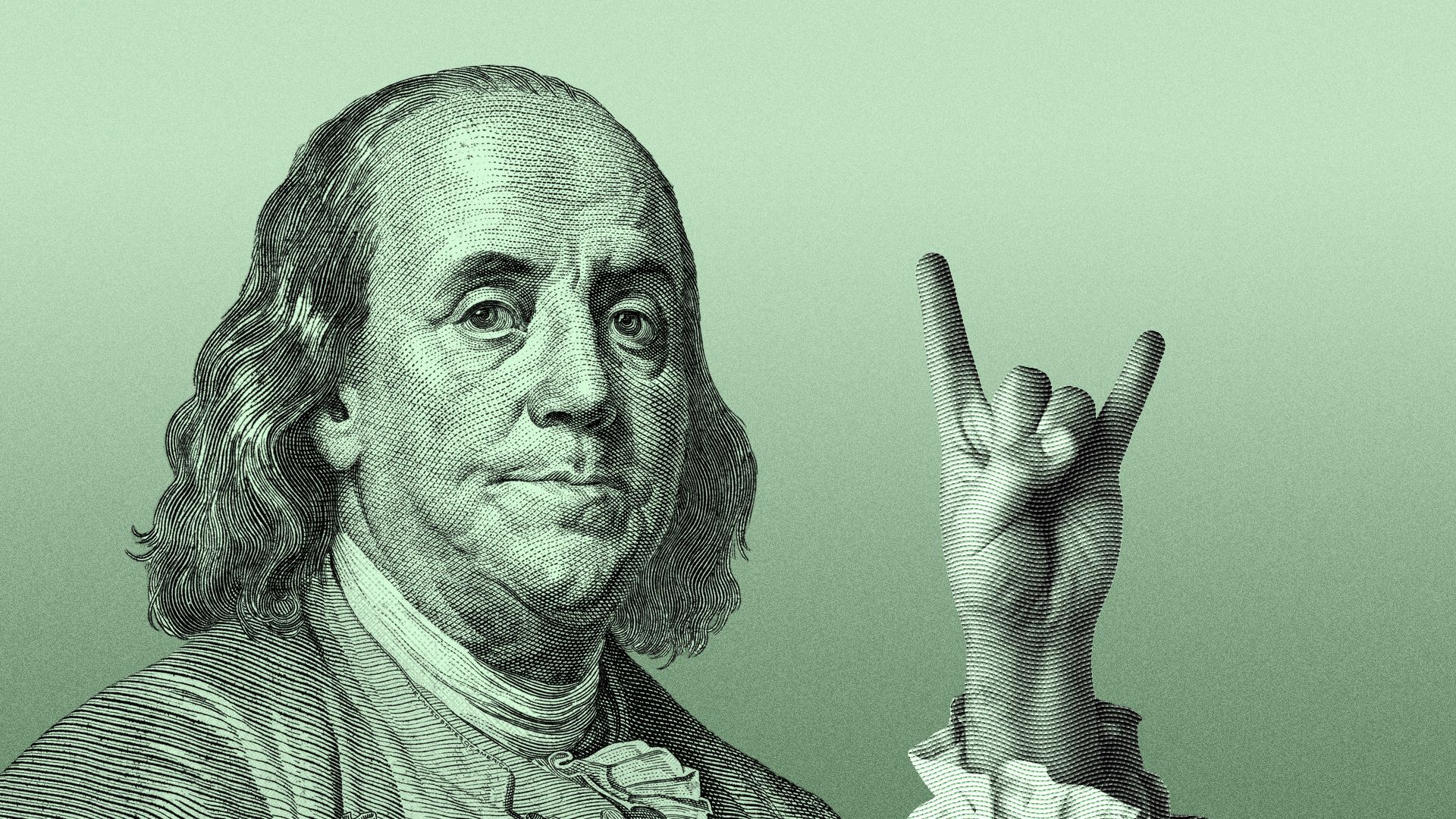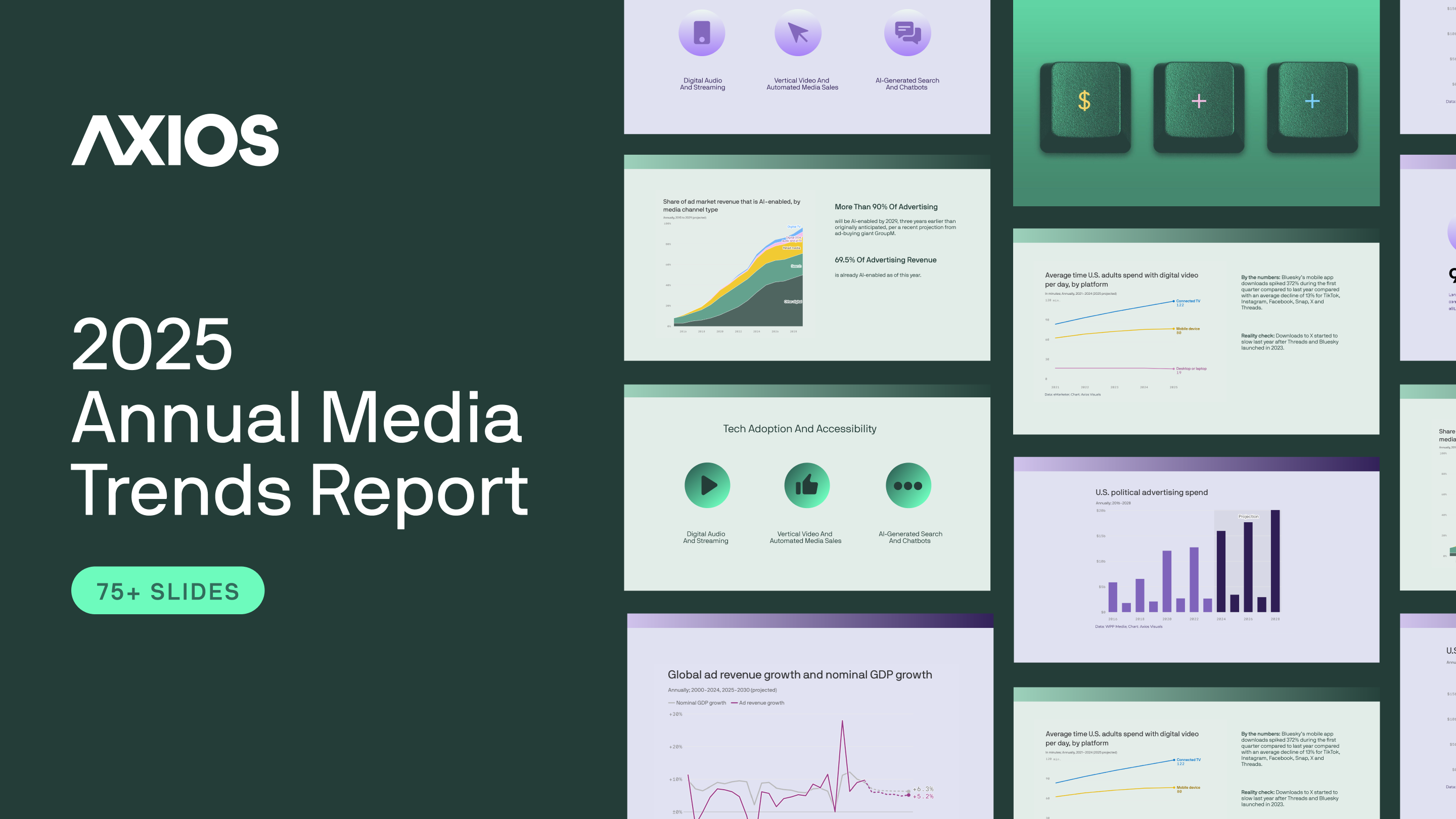|
||
| Axios Pro Rata | ||
| By Dan Primack · Sep 17, 2025 | ||
|
Greetings from D.C., where I'm in town for our Axios AI+ Summit.
|
||
| Top of the Morning | ||

|
||
|
Illustration: Maura Losch/Axios |
||
|
StubHub last night raised $800 million in its IPO, pricing at the midpoint of its $22 to $25 per share range.
I spoke with StubHub co-founder and CEO Eric Baker about the IPO and the business. What follows is an edited transcript of our conversation: Axios: Why go public now? Baker: "It's really about raising proceeds to deleverage, since we took on a lot of debt when [Viagogo] bought StubHub. For example, I'm not selling any shares.
What did you keep hearing from prospective investors on the roadshow? "A lot of people are very excited about us doing direct issuance, like the deal we just signed with Major League Baseball. Everyone knows we're the dominant platform for global ticket resale, so they're interested in the next phase." How much growth are you seeing from events outside of concerts and sports? "Concerts and sports are huge, but we're seeing so many other experiences. For example, the University of Oklahoma created something where you can buy tickets to [postgame] press conferences. There are also all sorts of exhibits and live gaming. Plus, the growth of comedy through platforms like YouTube." President Trump recently signed an executive order on ticket gouging. It's not mentioned in your S-1. Do you agree with what he's doing? "Yes. If you look at the executive order, it has three planks:
Ticketmaster is a big reseller, in addition to being the top primary issuer. How do you view the regulatory resolution of that situation, vis-à-vis Stubhub? "Everything we focus on doing assumes that nothing changes with the status quo ... If anything were to change, I'd assume there would be a lot of positive developments for us." You mentioned the bots issue. When I go to buy tickets for an event, it feels like face value ones last for less than five minutes, and then suddenly, there are hundreds immediately on StubHub at very high prices. Isn't that a bot issue? "I think many of the problems with major events often have nothing to do with bots, but rather the failures of how tickets are put up for sale by the primary seller." |
||
|
|
||
| Also... | ||
|
President Trump yesterday delayed the TikTok ban, as expected. There also was a buzzy WSJ report about how the White House has agreed to a deal whereby Andreessen Horowitz, Oracle and Silver Lake would control TikTok U.S. via a carveout from China's ByteDance.
Three things to know:
|
||
|
|
||
| The BFD | ||

|
||
|
Illustration: Aïda Amer/Axios |
||
|
Samara, a maker of prefabricated tiny homes that spun out of Airbnb, tells Axios that it raised $34 million in Series B funding led by insider Thrive Capital. Why it's the BFD: America has an affordable housing crisis. Catch up quick: Samara was the brainchild of Airbnb co-founder Joe Gebbia and former Flex CEO Mike McNamara — a marriage of design and manufacturing chops.
By the numbers: Samara has booked $100 million in revenue over the past 12 months, and currently is delivering around 10 homes per month. Time from order to delivery can range from seven months for simple builds to 18 months for complex multi units.
The bottom line: "Building homes is very different than what we built at Flex, but it's still manufacturing. That means repetition in a controlled environment that leads to lower costs and better quality every single year." — Mike McNamara |
||
|
|
||
|
A MESSAGE FROM AXIOS |
||
| Coming Soon: Your insider guide to the media industry | ||

|
||
|
The 2025 Annual Media Trends Report drops Sept. 18 — your definitive guide to the forces reshaping media. Penned by Axios media expert Sara Fischer, this is a must-read 75+ page deck on how AI, new formats, and regulation are reshaping media and monetization— built for leaders who need to stay ahead. Full access is for Media Trends Executive members only. Become a member today to unlock the report at launch. |
||
| Venture Capital Deals | ||
|
|

